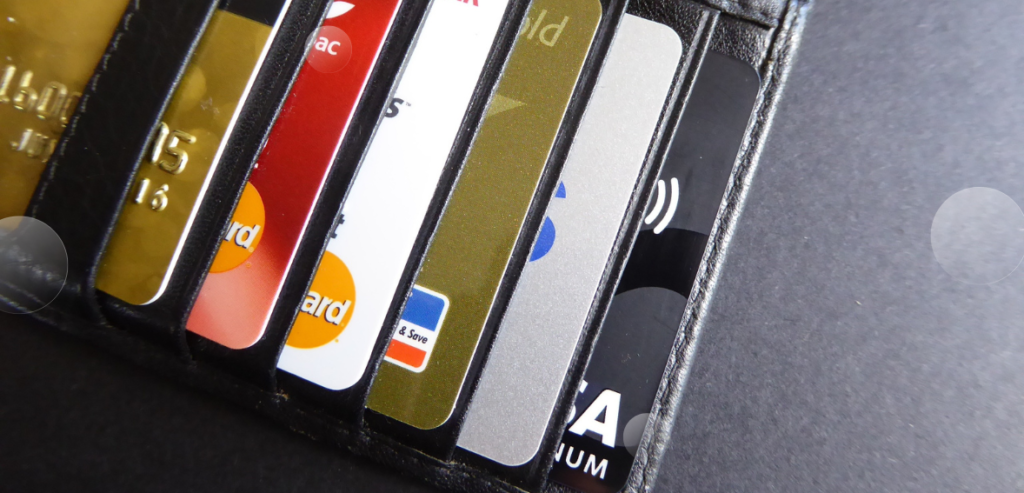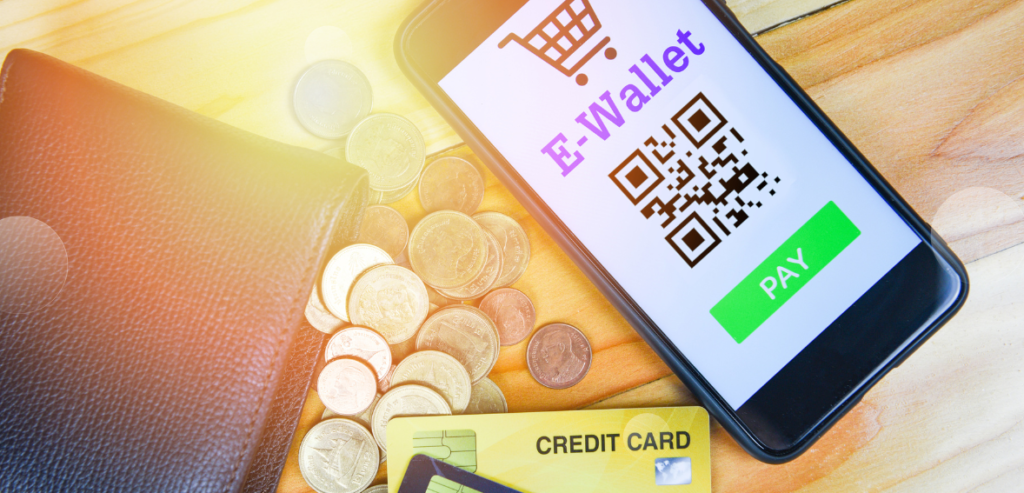In today’s era of digital transactions, customers expect multiple payment options when making purchases. Payment methods have gone beyond traditional cash and checks, and businesses that do not offer various payment modes risk losing customers to their competitors. Companies should know the different payment methods available and how to accept each.
Payment methods refer to the ways customers can pay for goods or services. They can range from traditional cash and checks to digital methods like mobile payments, e-wallets, and cryptocurrencies. Accepting multiple payment modes can improve customer satisfaction and increase sales. This article will shed light on the top 10 methods of payment and guide businesses on how to accept them.
Understanding What is a Payment Method
A payment method refers to how customers can pay for goods or services in a physical store or online. Payment methods range from traditional options like cash and checks to more modern digital means, such as credit cards and electronic fund transfers.
Payment methods play a critical role in a business’s operational framework. They facilitate the exchange of money and impact cash flow, financial reporting, and strategic financial planning.
Businesses need to understand each payment method’s specific features and procedures to effectively move funds between parties. This knowledge helps businesses make strategic decisions when choosing a payment option in business-to-business (B2B) and business-to-consumer (B2C) transactions. Exploring the details of these payment methods makes their significance in the broader context of financial exchanges apparent.
Different Types of Payment Methods
Now, let’s take a thorough look at ten various payment methods, uncovering their unique benefits and learning how to utilize them effectively.
Cash

Cash is the most traditional payment method and has been used for centuries. Some of the advantages of accepting cash include the following:
- Instant payment: Cash payments are immediate, so there is no need for funds to clear.
- No transaction fees: unlike other payment methods, transaction fees are associated with cash payments.
- Widely accepted: Cash is accepted everywhere and by everyone.
To accept cash payments, businesses should:
- Have a cash box or register: The cash can be kept and stored securely.
- Count the cash: Count the money received from customers to ensure the correct amount.
- Provide change: Businesses should have sufficient change to provide to customers.
- Keep track of cash received: Businesses need to keep track of money received and ensure that it is deposited safely and regularly to prevent loss or theft.
While accepting cash payments may seem straightforward, it is essential to note that they come with some risks, such as theft and counterfeiting. Businesses need to take appropriate measures to mitigate these risks.
Checks
Checks are another traditional payment method that businesses may accept. Some of the advantages of accepting checks include the following:
- Convenience: Customers can pay for goods or services without cash or credit cards.
- Record keeping: checks provide a paper trail of payments received, which can help with accounting and record-keeping.
To accept check payments, businesses should:
- Checks processing system: A checks processing system can include a check scanner, software to process the checks, and a printer for deposit slips.
- Verify the Checks: Verify that the check is valid, including checking the account number, routing number, and signature.
- Deposit the Checks: Deposit the Checks promptly to ensure funds are available and prevent the risk of the Checks bouncing.
To prevent Checks fraud, businesses should:
- Train employees: Employees should be trained to recognize potential signs of Checks fraud, such as altered or counterfeit checks.
- Use fraud detection software: Businesses can use software to detect fraudulent Checks.
- Use positive pay services: Some banks offer positive pay services, which can help prevent check fraud by verifying checks before they are deposited.
While Checks are still a popular payment method, they come with risks, such as bounced Checks and Checks fraud. Businesses need to take appropriate measures to mitigate these risks.
Credit and Debit Cards

Credit and debit cards are widely used, especially for online transactions. Some of the advantages of accepting credit and debit cards include the following:
- Increased sales: Accepting credit and debit cards can increase sales by making it easier for customers to make purchases.
- Security: Credit and debit cards offer more protection than cash or Checks, as fraud detection measures and insurance policies protect them.
To accept credit and debit card payments, businesses should:
- Choose a merchant service provider: A merchant service provider is a company that provides the necessary equipment and technology to process credit and debit card payments. Businesses should choose a reputable provider that offers competitive rates.
- Set up a point-of-sale system: Businesses should have a point-of-sale system accepting credit and debit card payments.
- Comply with PCI DSS: PCI DSS (Payment Card Industry Data Security Standard) is a set of security standards that businesses must comply with to protect customers’ credit and debit card information.
To prevent chargebacks, businesses should:
- Clear refund and return policies: Businesses should have clear policies for refunds and returns to minimize disputes.
- Use fraud detection measures: Businesses can use fraud detection software and systems to detect and prevent fraudulent transactions.
- Respond promptly to chargebacks: Businesses should respond promptly and provide evidence to support their case.
While credit and debit card payments are convenient and secure, they do come with fees and the risk of chargebacks. Businesses must choose a reputable merchant service provider with measures to prevent and manage chargebacks.
Mobile Payments
Mobile payments are becoming increasingly popular, especially with the rise of smartphones and mobile apps. Some of the advantages of accepting mobile payments include the following:
- Convenience: Mobile payments are easy to use and can be made anywhere.
- Speed: Mobile payments are often faster than traditional payment methods, such as Checks or credit cards.
To accept mobile payments, businesses should:
- Choose a mobile payment provider: Many mobile payment providers, such as PayPal, Square, and Venom. Businesses should choose a provider that is easy to use, offers competitive rates, and has a strong reputation for security.
- Set up a mobile payment system: Businesses should set up a system that allows customers to make payments using their mobile devices. This can include a mobile app, card reader, or a QR code.
To choose a mobile payment provider, businesses should consider the following:
- Fees: Different mobile payment providers charge different fees, so comparing rates and choosing a competitive pricing provider is crucial.
- Security: Mobile payments require sensitive financial information, so businesses should choose a provider with strong security measures to protect against fraud and data breaches.
- Customer support: Businesses should choose a provider that offers reliable customer support if any issues arise.
While mobile payments offer many benefits, they also come with risks, such as fraud and security breaches. Businesses should choose a reputable mobile payment provider with measures to protect customer data and prevent fraud.
E-Wallets

E-wallets, or digital wallets, are electronic devices or software applications that allow individuals to make electronic transactions, including payments. Some of the advantages of accepting e-wallet payments include the following:
- Convenience: E-wallets allow customers to make payments quickly and easily without needing cash or physical credit cards.
- Security: E-wallets offer advanced security features, such as encryption and two-factor authentication, to protect against fraud and data breaches.
To accept e-wallet payments, businesses should:
- Choose an e-wallet provider: Many e-wallet providers, such as Apple Pay, Google Pay, and PayPal. Businesses should choose a provider that is easy to use, offers competitive rates, and has a strong reputation for security.
- Set up an e-wallet payment system: Businesses should set up a system that allows customers to make payments using their e-wallets. This can include adding an e-wallet payment option to an existing online Check system.
To choose an e-wallet provider, businesses should consider the following:
- Fees: Different e-wallet providers charge different fees, so comparing rates and choosing a competitive pricing provider is important.
- Security: E-wallet payments require sensitive financial information, so businesses should choose a provider with strong security measures to protect against fraud and data breaches.
- Customer support: Businesses should choose a provider that offers reliable customer support if any issues arise.
While e-wallets offer many benefits, they also come with some risks, such as fraud and security breaches. Businesses should choose a reputable e-wallet provider with measures to protect customer data and prevent fraud.
Bank Transfers
Bank transfers, also known as wire transfers or electronic funds transfers (EFT), are direct funds transfers from one bank account to another. Some of the advantages of accepting bank transfers include the following:
- Security: Bank transfers are highly secure, with solid encryption and verification procedures to protect against fraud.
- Cost-effectiveness: Bank transfers are typically less expensive than credit card transactions, with lower processing fees and no chargebacks.
To accept bank transfers, businesses should:
- Provide customers with their bank details: Businesses should provide their bank account number, routing number, and other necessary information for the transfer.
- Track incoming transfers: Businesses should keep track of incoming transfers and match them to customer orders or invoices.
To choose a bank transfer provider, businesses should consider the following:
- Fees: Different banks and payment processors charge different fees for bank transfers, so it’s important to compare rates and choose a competitive pricing provider.
- Security: Bank transfers require sensitive financial information, so businesses should choose a provider with strong security measures to protect against fraud and data breaches.
- International transfers: If the business deals with international customers or suppliers, they should choose a provider that offers international bank transfers with competitive exchange rates.
While bank transfers offer many benefits, they can be less convenient than other payment methods and may take longer to process. Businesses should weigh the pros and cons and choose the best payment methods for their customers and their business.
Cryptocurrencies

Cryptocurrencies are digital currencies that use encryption techniques to secure and verify transactions. Some of the advantages of accepting cryptocurrencies include the following:
- Low transaction fees: Cryptocurrency transactions typically have lower processing fees than other payment methods.
- Global accessibility: Cryptocurrencies can be used by anyone with an internet connection, making them accessible to customers worldwide.
To accept cryptocurrency payments, businesses should:
- Create a cryptocurrency wallet: Businesses should create a wallet for the cryptocurrency they wish to accept, such as Bitcoin or Ethereum.
- Display cryptocurrency payment options: Businesses should display the cryptocurrency payment option on their website or at the point of sale.
To choose a cryptocurrency payment provider, businesses should consider the following:
- The type of cryptocurrency accepted: Different payment providers may support different cryptocurrencies, so businesses should choose one that supports the currency they wish to receive.
- Security: Cryptocurrencies are decentralized and unregulated, which can increase the risk of fraud or hacking. Businesses should choose a payment provider with robust security features to protect against these risks.
- Conversion rates: If the business wants to convert cryptocurrency payments to fiat currency, it should choose a provider that offers competitive conversion rates.
While cryptocurrencies offer unique benefits, they are still relatively new and volatile payment methods. Businesses should consider risks and benefits carefully and consult financial and legal experts before accepting cryptocurrencies.
Some More Payment Methods
Gift Cards and Vouchers
A gift card, also a stored value card, works like a prepaid card, allowing you to buy items at various places such as retail stores, gas stations, and restaurants. You add money to the card, and then you or the person you give the card to can use it to make purchases where it’s accepted. Gift cards come in two types: open-loop and closed-loop. Here are some of the advantages of gift cards and vouchers:
- Enhanced Customer Engagement: Gift cards encourage repeat business and can attract new customers when given as gifts.
- Increased Sales: Gift cards often lead to sales that exceed the card’s value, as customers are likely to purchase more than the card’s worth.
- Flexibility and Convenience: Customers appreciate the convenience and flexibility of choosing their gifts, which can enhance their shopping experience.
How to Accept Gift Cards and Vouchers:
- Choose a Platform: Decide whether to create physical gift cards, digital vouchers, or both. Several providers can help set up both types.
- Integrate with Your POS: Ensure that your point-of-sale system can accept and process gift cards as payment. This may require software updates or integration with third-party services.
- Staff Training: Employees should be knowledgeable about issuing, accepting, and managing gift cards.
- Promote Gift Cards: Display your gift card options prominently in-store and online. Consider offering promotions or bonuses with gift card purchases.
Before start accepting gift cards as a payment method, businesses need to consider:
- Fraud and Security Risks: Businesses must be aware of potential fraud risks associated with gift cards. Scams targeting gift card programs can involve compromised card numbers or fake redemption attempts. Implementing security measures and educating customers about gift card scams is essential.
- Compliance with Laws and Regulations: Selling and accepting gift cards are subject to federal and state regulations, such as the CARD Act, which sets rules around expiration dates and fees. To avoid legal issues, businesses must ensure their gift card programs are fully compliant.
- Financial Implications: Accepting gift cards can affect a business’s cash flow differently than other forms of payment. For instance, revenue is received upfront, but redeeming gift cards can displace other sales. Additionally, managing unredeemed gift card value (breakage) and accounting for it correctly is crucial for financial reporting.
Barter/Trade
Bartering or trading is a payment method involving directly exchanging goods and services without money. This exchange method has existed since ancient times and continues to be relevant today, particularly in communities and networks that prioritize sustainable and local exchange systems. It’s an excellent way to obtain goods or services you need without the use of traditional currency. Some advantages of bartering include:
- Cost savings: Businesses can conserve cash by exchanging goods and services directly.
- Network building: Bartering can help businesses build relationships and networks with other companies and customers.
- Flexibility: Barter transactions can be tailored to the needs and values of the businesses involved, providing flexibility not always available with other payment methods.
To accept barter/trade payments, businesses should:
- Establish a barter agreement: Clearly define the goods or services being exchanged, their value, and any terms or conditions.
- Value goods and services reasonably: Both parties should agree on the value of the goods or services being exchanged to ensure fair trade.
- Keep accurate records: Though no money changes hands, it’s essential to document barter transactions for accounting and tax purposes.
When considering barter as a payment method, businesses should be aware of:
- Tax Implications: The IRS considers bartering taxable income for both parties involved. For business owners and companies participating in bartering, it’s essential to consider the fair market value of all goods and services exchanged.
- Record Keeping: It’s crucial for business owners and companies involved in bartering to maintain accurate records. Paying close attention to the fair market value of exchanged items is essential for proper record-keeping.
- Matching needs: Finding a barter partner whose needs match what you offer can be challenging but rewarding when successful.
Bartering can be a valuable addition to a business’s payment methods, particularly for small businesses or those looking to expand their network and community engagement.
Which Payment Method is Best for the Businesses?
Selecting the optimal methods of payment for your business involves evaluating various options to meet your operational requirements and your customers’ preferences. To identify the most suitable payment solutions, it’s essential to analyze the advantages and disadvantages of each method, ensuring they align with your business model and cater to the specific demands of your customer base.
Opt for payment solutions that minimize obstacles for your customers and business processes. If uncertainty persists regarding the best choice, consider beginning with the most universally recognized and utilized payment method among consumers.
Credit and debit cards stand out as the preferred payment method, offering versatility in in-person and online transactions. This supports businesses operating in both physical and digital spaces. Credit and debit cards are globally accepted, providing customers with a sense of reliability and security worldwide.
Benefits of Adopting Various Payment Methods Within Your Business
Adopting various payment options within your business strategy offers numerous advantages, from enhancing the customer experience to boosting your competitive stance in the market. Here’s a reorganized look at the key benefits:
- Boost in Competitive Advantage: By offering an array of payment options, you set your business apart in a crowded market, directly addressing consumer expectations and securing a competitive lead.
- Secure Payment Processes: Integrating trusted and secure payment methods is crucial. It safeguards customer data and strengthens their confidence in your brand, fostering a sense of reliability and forming lasting relationships.
- Acceleration of Cash Flow: Efficient and diverse payment methods can expedite the transaction process, improving your business’s cash flow. This efficiency in handling payments aids in the effective management of receivables.
- Enhanced Customer Satisfaction and Loyalty: Giving customers the liberty to select their preferred payment method ensures a hassle-free and enjoyable purchasing experience. This choice fosters customer satisfaction, builds trust, and encourages loyalty.
- Expansion of Market Reach: Including globally recognized payment methods can significantly widen your business’s appeal, drawing in a varied clientele from different regions and cultural backgrounds.
- Reduction in Transaction Times: Streamlining the checkout process with various payment options reduces wait times and lowers the chance of transaction drop-offs, enhancing the overall customer experience.
- Keeping Pace with Payment Trends: Staying abreast of and incorporating the latest payment technologies into your business model signals a commitment to innovation. It positions your brand as a forward-thinking leader attuned to the changing preferences of the consumer market.
Final Thoughts
Understanding and accepting multiple payment methods is crucial for businesses in today’s digital age. As outlined in this comprehensive guide, embracing a variety of payment modes, from traditional cash and checks to modern options like mobile payments and cryptocurrencies, can significantly enhance customer satisfaction and increase sales. Each method has advantages and challenges, and businesses must carefully navigate these to ensure smooth transactions while mitigating risks such as fraud and security breaches.
Cash, Checks, credit and debit cards, mobile payments, e-wallets, bank transfers, cryptocurrencies, gift cards, and barter/trade are all viable payment methods businesses can consider. To maximize payment acceptance, businesses should also ensure a secure payment processing system and provide their customers with clear and transparent payment policies.
Businesses should offer multiple payment methods, carefully consider their options, and prioritize security and customer satisfaction to ensure seamless payment processing and maximize revenue.
FAQs
What advantages do businesses gain from accepting a variety of payment methods?
Accepting a wide range of payment methods increases client convenience while expanding your brand, speeding up transaction times, and improving cash flow management. This strategy gives your company a competitive edge by guaranteeing cutting-edge security measures, exhibiting flexibility in response to changing market trends, and fostering client satisfaction, loyalty, and trust.
How can businesses effectively integrate digital and mobile payment solutions?
Businesses should think about installing a POS system that supports a variety of digital methods of payment to ensure a smooth transition to digital and mobile payment systems. To determine the entire return on investment, it is critical to assess the setup fees up front, ongoing transaction fees, and recurring service charges.
Additionally, the danger of fraud and illegal transactions can be greatly reduced by placing a high priority on security through encryption and biometric verification techniques like fingerprint or facial recognition.What are typical hurdles in accepting payments, and how can they be overcome?
Maintaining client satisfaction, maintaining steady sales conversions and retention, thwarting fraud, and attaining operational efficiency are all issues that businesses frequently confront.
Businesses are urged to offer a variety of payment methods, improve payment systems for increased security and operational efficiency, and use anti-fraud measures like Address Verification Service (AVS) and Card Verification Value (CVV) checks to overcome these challenges. Transaction data must be continuously monitored and analyzed to detect and address any new problems quickly.What factors should businesses consider when selecting payment methods?
Businesses must assess transaction volumes, average transaction sizes, and the expenses associated with each payment option to choose the best payment options for their clients.
Evaluating the need for foreign transaction support, giving safe payment options priority, and guaranteeing a seamless payment process is essential. Keeping up with industry advancements and collaborating with reputable payment service providers can also significantly increase the success rates of payment acceptance.

